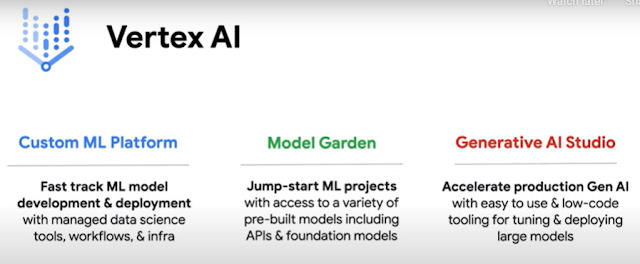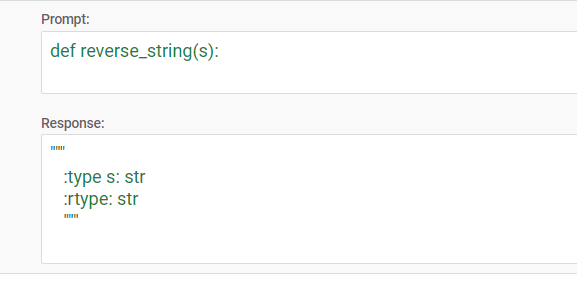Google has recently announced the public preview of its Codey model, a foundation model for text-to-code on Vertex AI, its machine learning platform. Codey is a generative AI model that can help developers with code completion, generation, and chat capabilities, customizable to a company's own codebase. Codey is one of the three new foundation models in Vertex AI, along with Imagen (text-to-image) and PaLM 2 (text and chat). These models enable businesses to innovate in entirely new ways with generative AI applications.

Codey is powered by a large-scale neural network that has been trained on billions of lines of code from various programming languages and domains. Codey can understand natural language queries and generate code snippets that match the user's intent and context. Codey can also chat with developers and provide feedback, suggestions, and explanations for the generated code. Codey can help developers across industries with real-time coding assistance, reducing errors, improving productivity, and enhancing creativity.
To access Codey, developers can use the Vertex AI Model Garden, a platform that helps users discover, test, customize, and deploy Vertex AI and select OSS models. The Model Garden is now available in preview on the Google Cloud console. Users can also leverage the Generative AI Studio, a user-friendly tool for model tuning and deployment on Vertex AI. The Generative AI Studio offers multiple tuning methods for large models, such as reinforcement learning from human feedback (RLHF), which helps improve model usefulness and reduce cost.
Codey is backed by enterprise-grade data governance, security, and safety features on Vertex AI. Users can upload their own code data with security and governance controls already built into Vertex AI, to help keep their data safe. Any code generated by Codey remains the customer's data and can be used by the organization as they see fit.
Vertex AI, Google's advanced machine learning platform, offers a comprehensive suite of models designed to streamline coding tasks. These models, collectively known as the Vertex AI Codey APIs, empower developers with powerful code generation, chat, and autocompletion capabilities. Let's dive into the three key components of the Vertex AI Codey APIs.
Code Generation API: Effortlessly Generate Code from Natural Language Descriptions
The Code Generation API revolutionizes the way developers create code by generating code snippets based on natural language descriptions. For instance, it can automatically generate a unit test for a specific function, saving valuable time and effort. Leveraging the code-bison model, this API provides a seamless integration of human language and code generation. Explore the code-bison model's parameters for more detailed insights into its capabilities.
Code Chat API: Empowering Developers with Intelligent Code-Related Assistance
The Code Chat API enables the development of intelligent chatbots capable of assisting with code-related queries. From debugging assistance to providing code-related explanations, this API enhances the coding experience. By utilizing the codechat-bison model, developers can tap into a vast knowledge base and receive real-time guidance. Discover the codechat-bison model's parameters to unlock the full potential of code-related chatbots.
Code Completion API: Enhancing Code Writing Efficiency with Smart Autocompletion
The Code Completion API takes code writing to the next level by offering intelligent autocompletion suggestions tailored to the context of your code. By leveraging the code-gecko model, this API analyzes the code you're writing to provide accurate and speedy suggestions. Boost your coding productivity and accuracy by exploring the code-gecko model's parameters and optimizing its performance.

Codey is an exciting new addition to Google Cloud's generative AI offerings, which aim to make generative AI useful for everyone. By making powerful foundation models available on a platform that makes adoption faster and safer, Google Cloud hopes to empower developers and businesses to build and deploy custom generative AI applications at scale.
Also Read:














No comments: